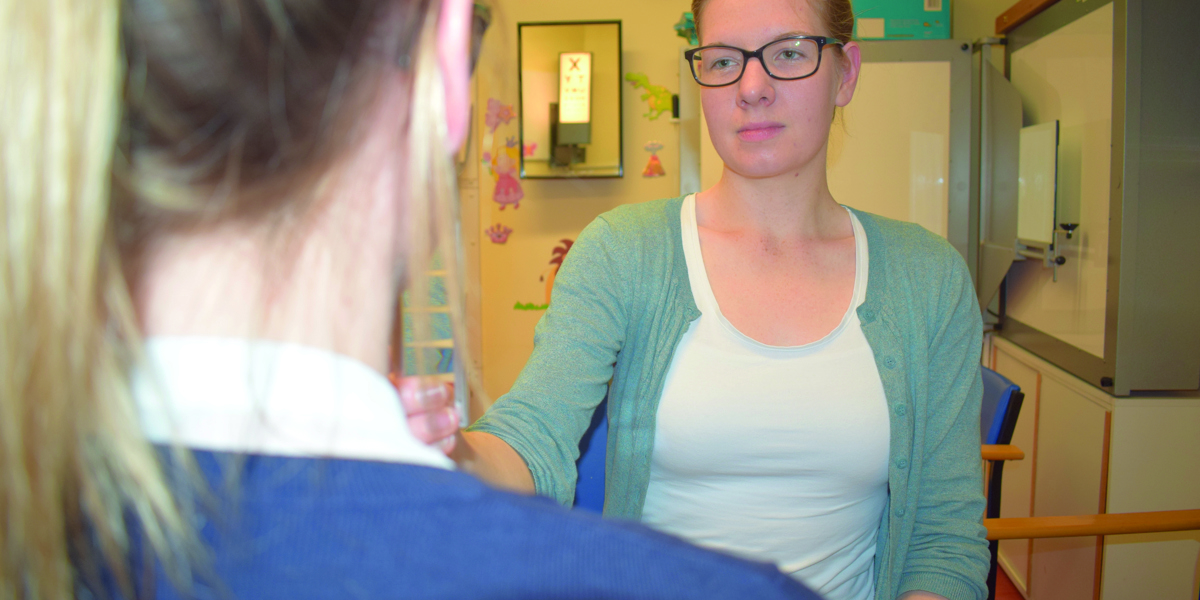
Orthoptists work in understanding how vision develops in childhood and understanding how the brain controls each of the muscles around an eye. They have an in-depth knowledge of how the brain uses visual information to make sense of what we see.
An orthoptists works with people of all ages and can measure vision whatever your age. Orthoptists are trained to diagnose and manage a range of conditions that affect vision such as double vision, reduced vision in childhood and eye misalignment (squint). Orthoptists often use patches and drops to help increase a childs vision and often use prisms and exercises to manage forms of double vision.
Orthoptists work with other eye care professionals such as ophthalmologists and optometrists. Orthoptists also work closely with other Allied health professional such as occupational therapists.
Ophthalmologists are medically trained doctors that specialise in diseases and injuries in and around the eye. They act both as physicians, diagnosing and prescribing treatments, and surgeons, performing operations. They typically work in eye hospitals and hospital eye departments, often alongside orthoptists.
Optometrists/Opticians specialise in prescribing glasses or contact lenses. They are trained to examine the eyes to detect defects in vision, signs of injury, ocular diseases or abnormality. They typically work in high street opticians, carrying out eye examinations, but some also work in hospitals or community clinics.
Orthoptists also specialise in specific conditions that may affect the eyes such as cerebal palsy, Multiple Sclorosis (MS), Parkinsons and Stroke.
To view the Fife orthoptics instagram page, please use this link: https://www.instagram.com/fifeorthoptics
To view the Fife orthoptics Facebook page, please use this link: https://www.facebook.com/NHSFifeOrthoptics/
To find out more about orthoptics, please use this link: https://www.orthoptics.org.uk/



